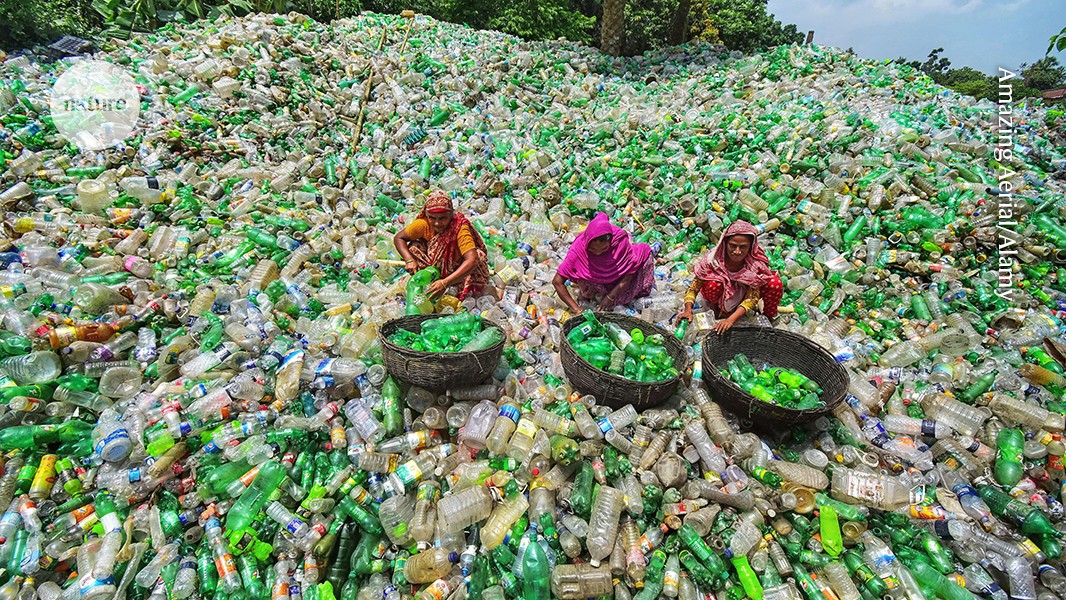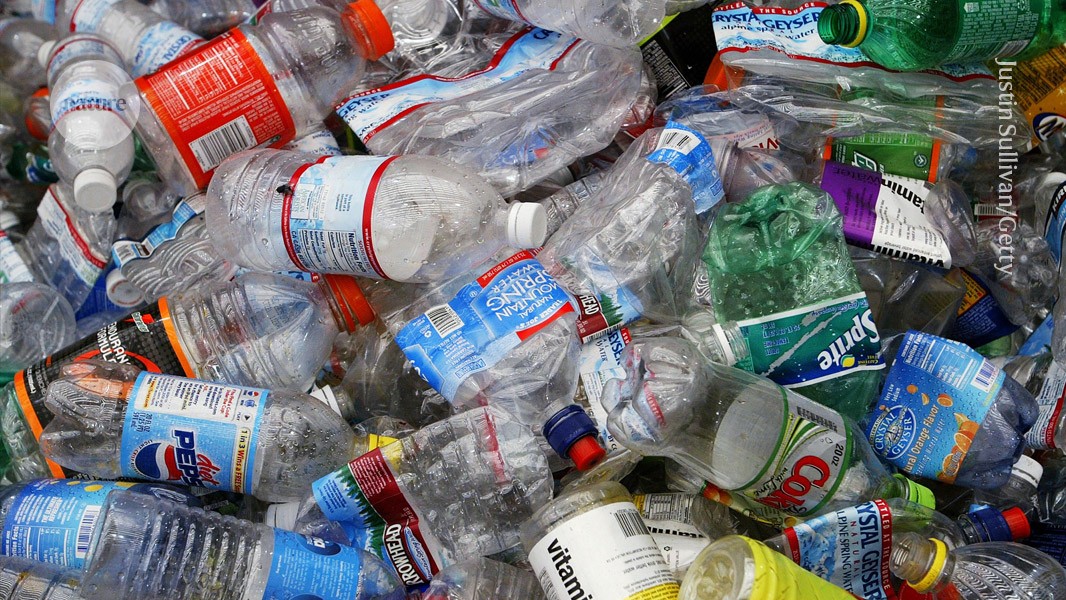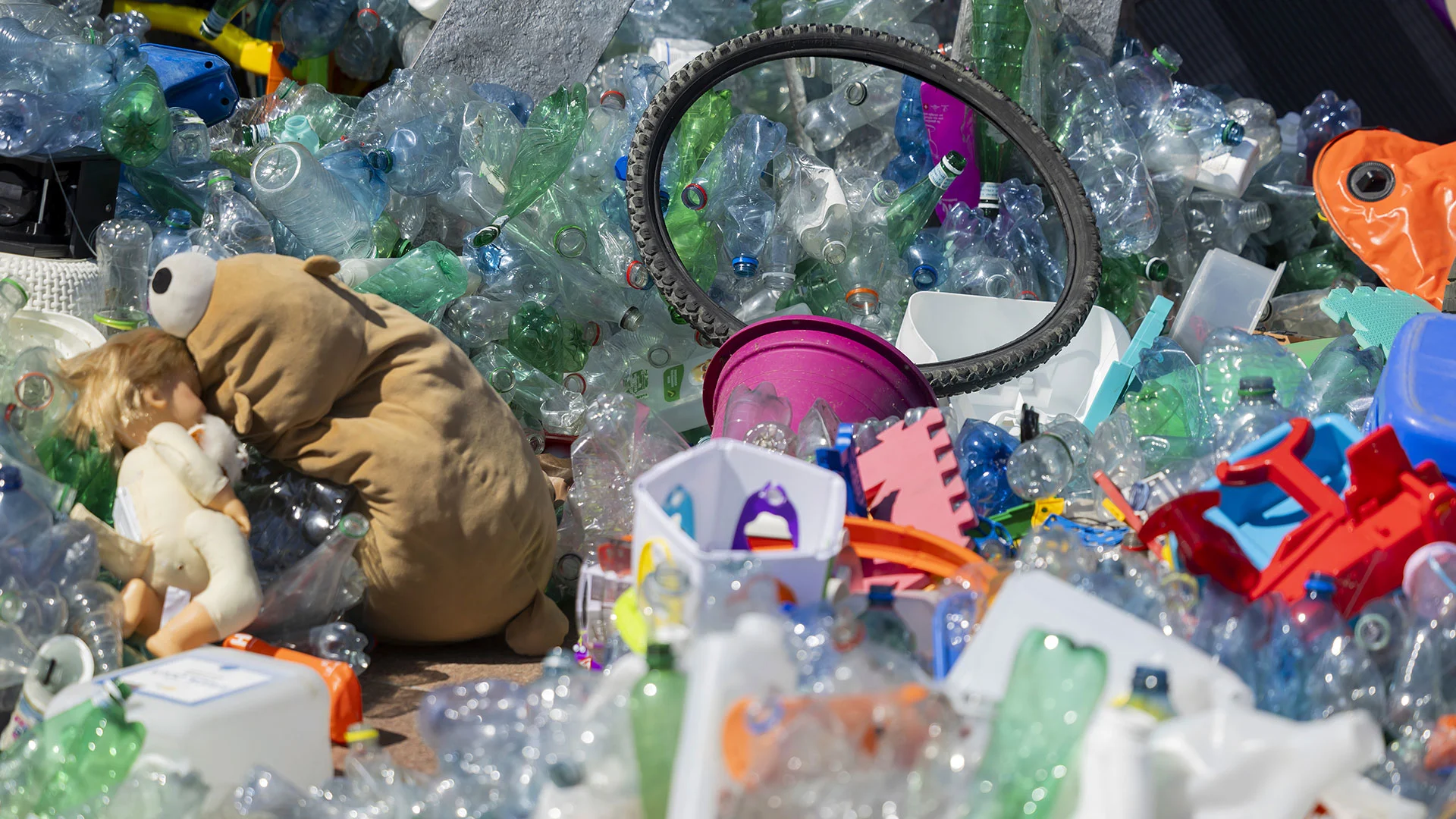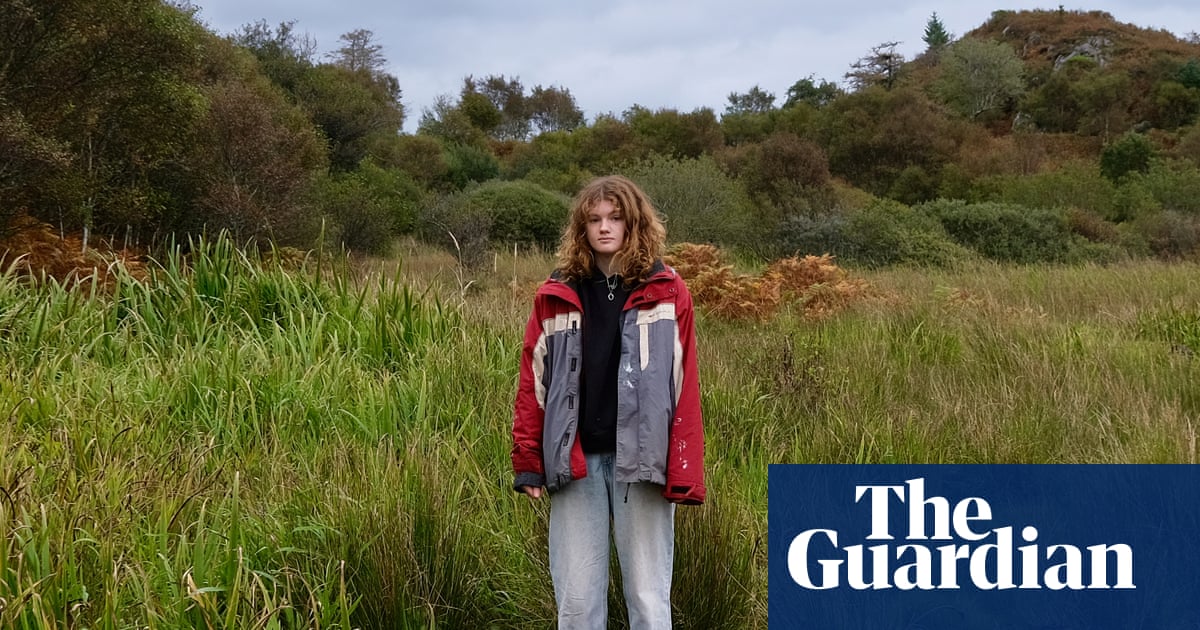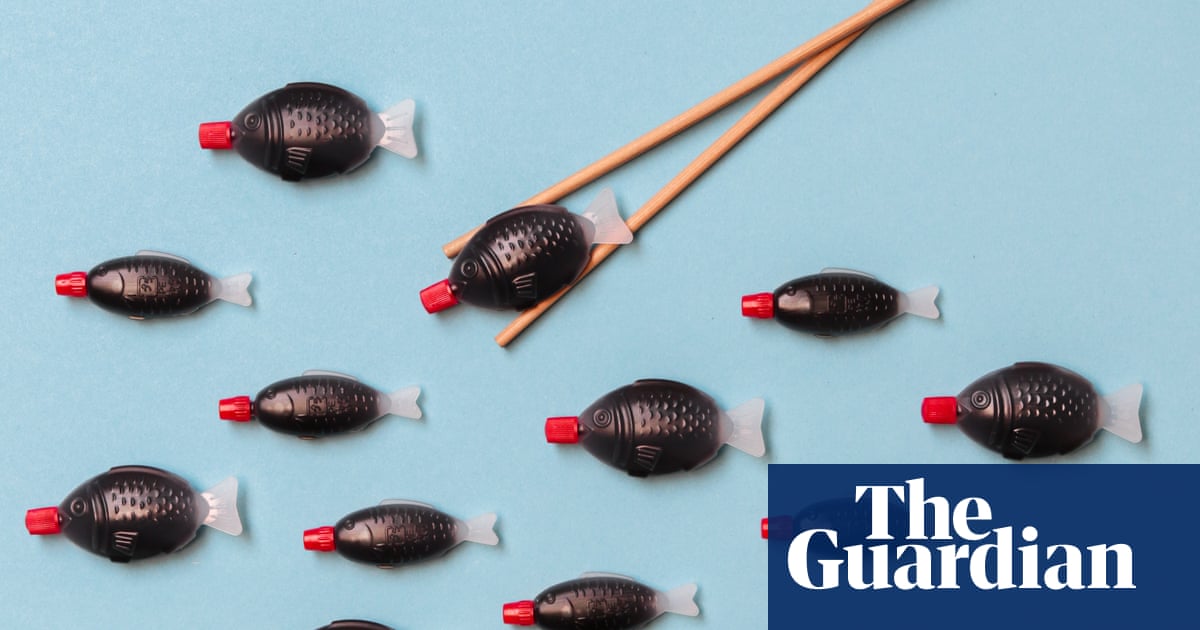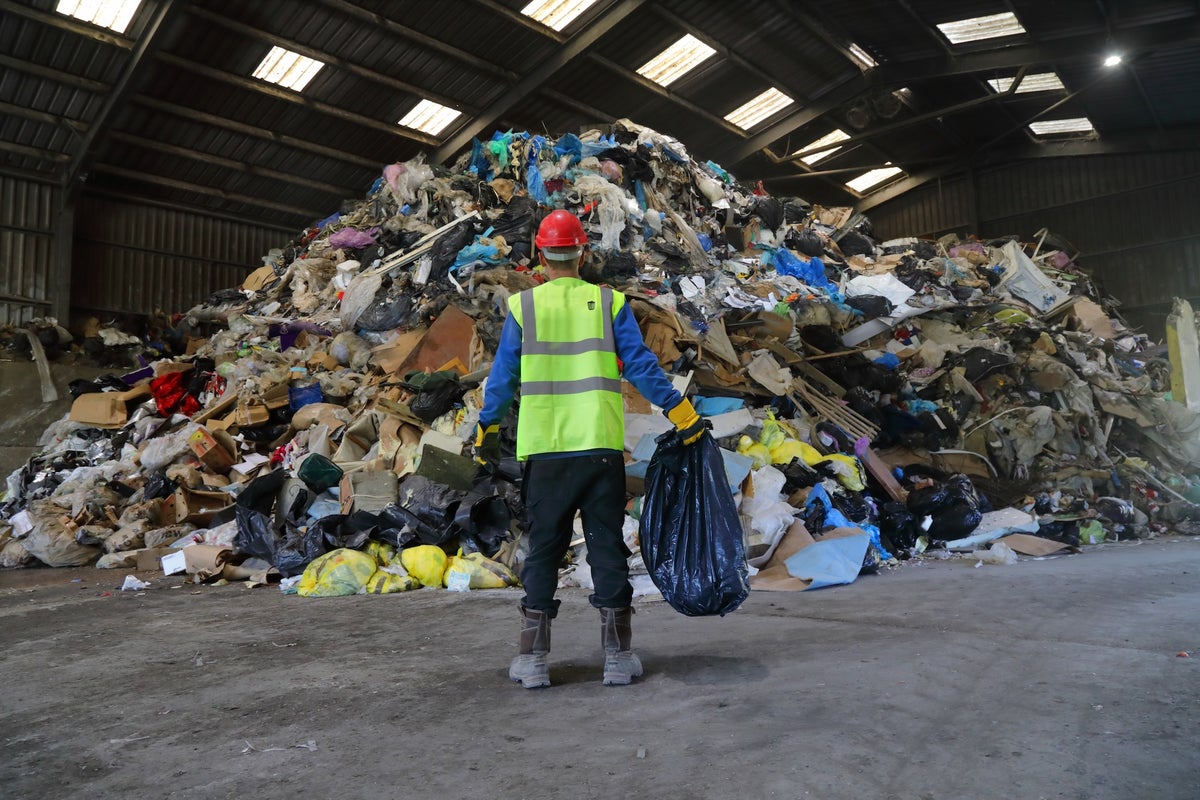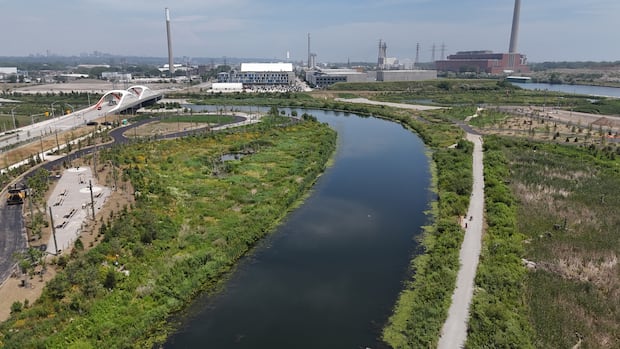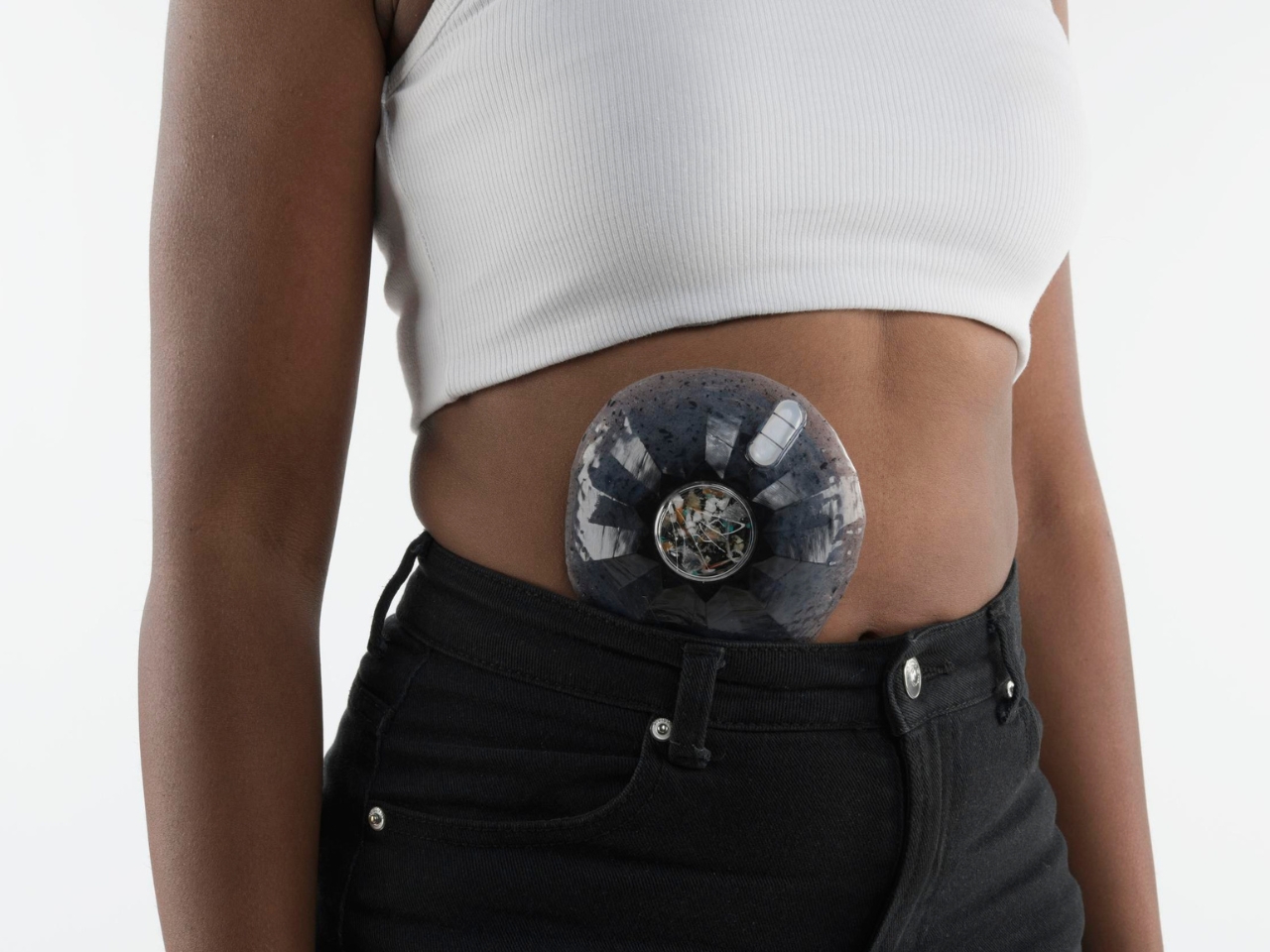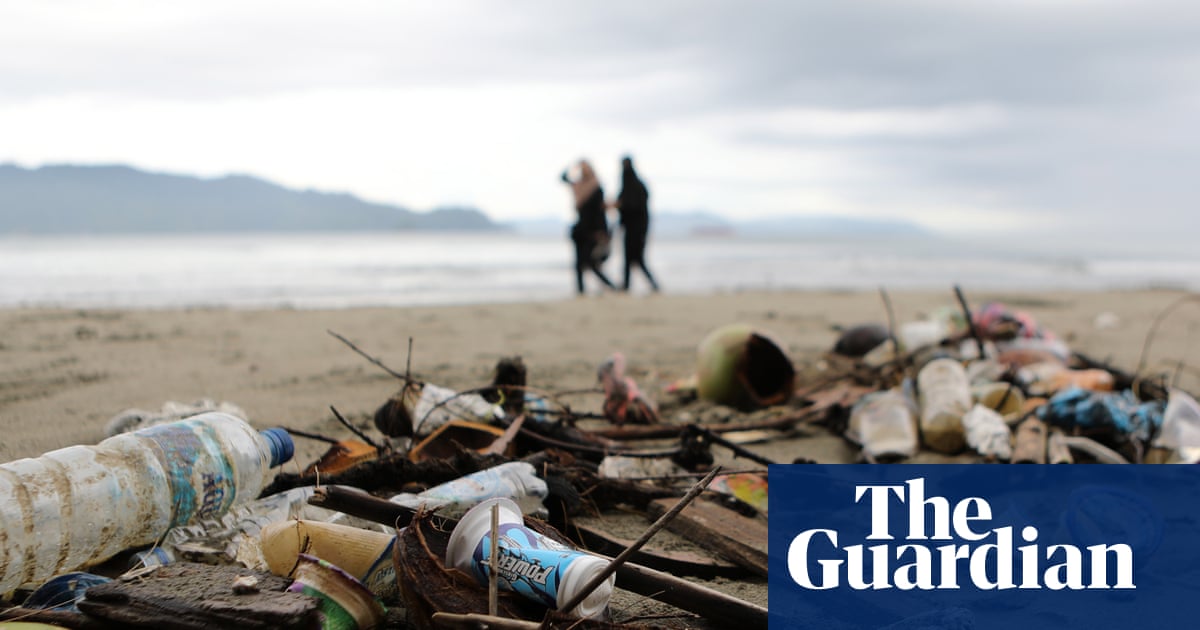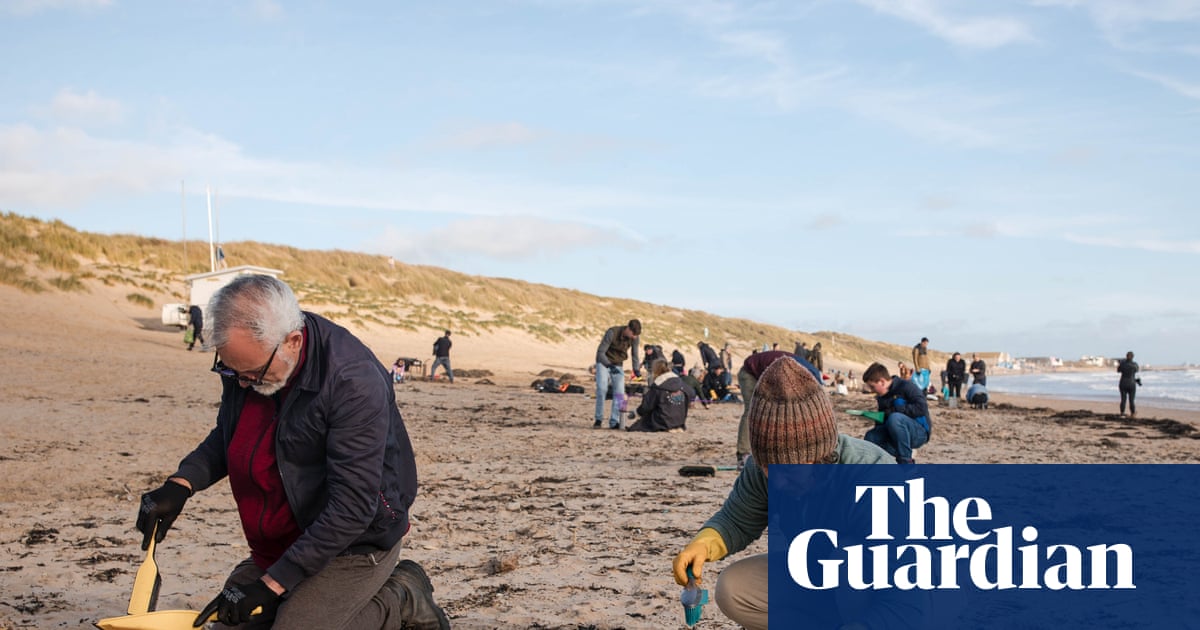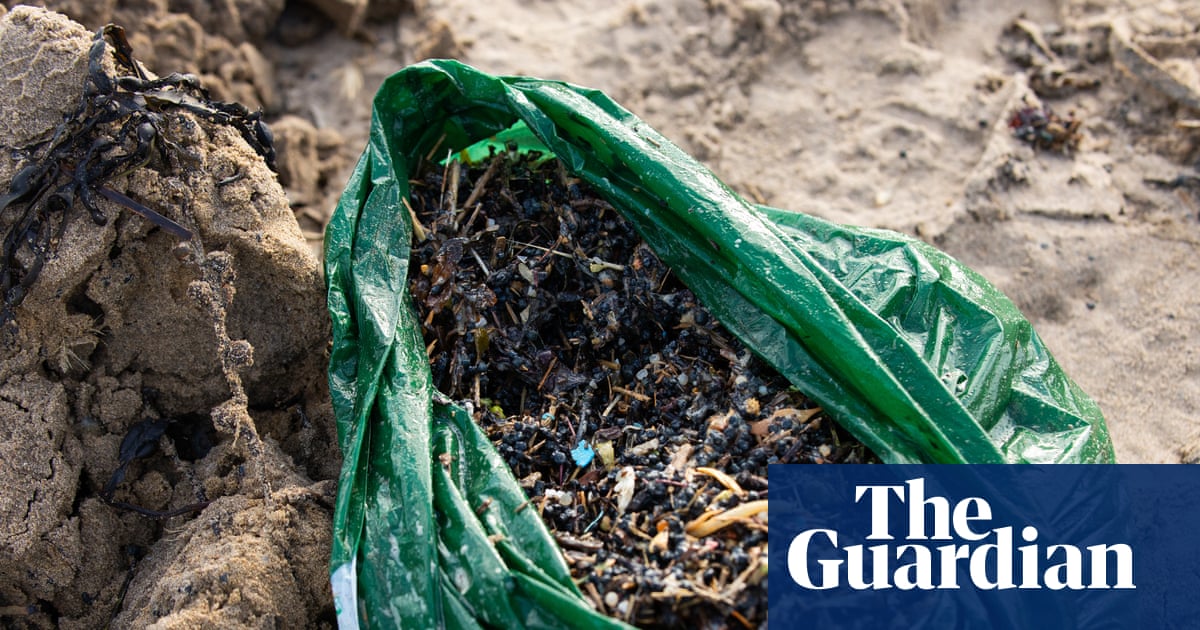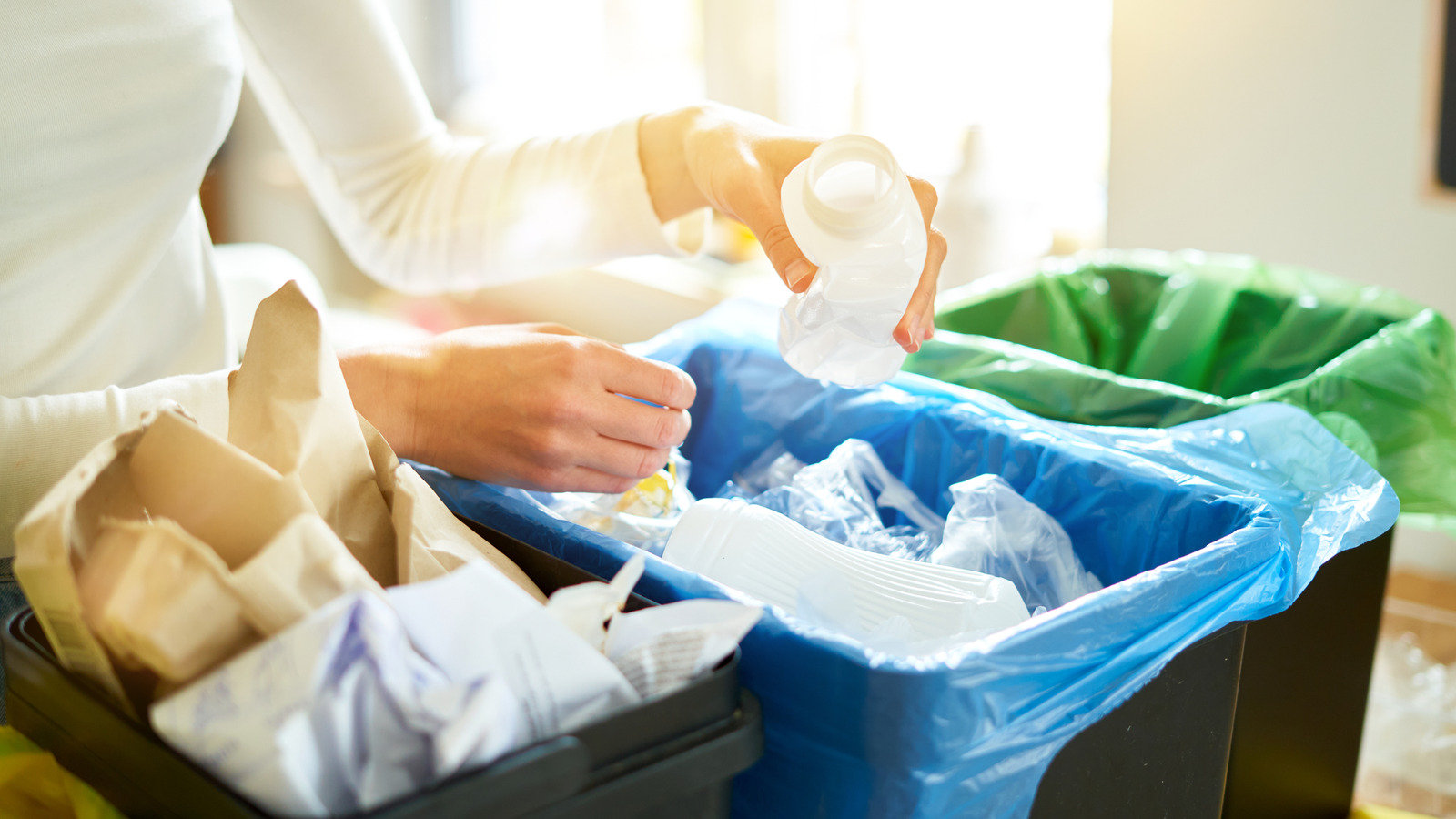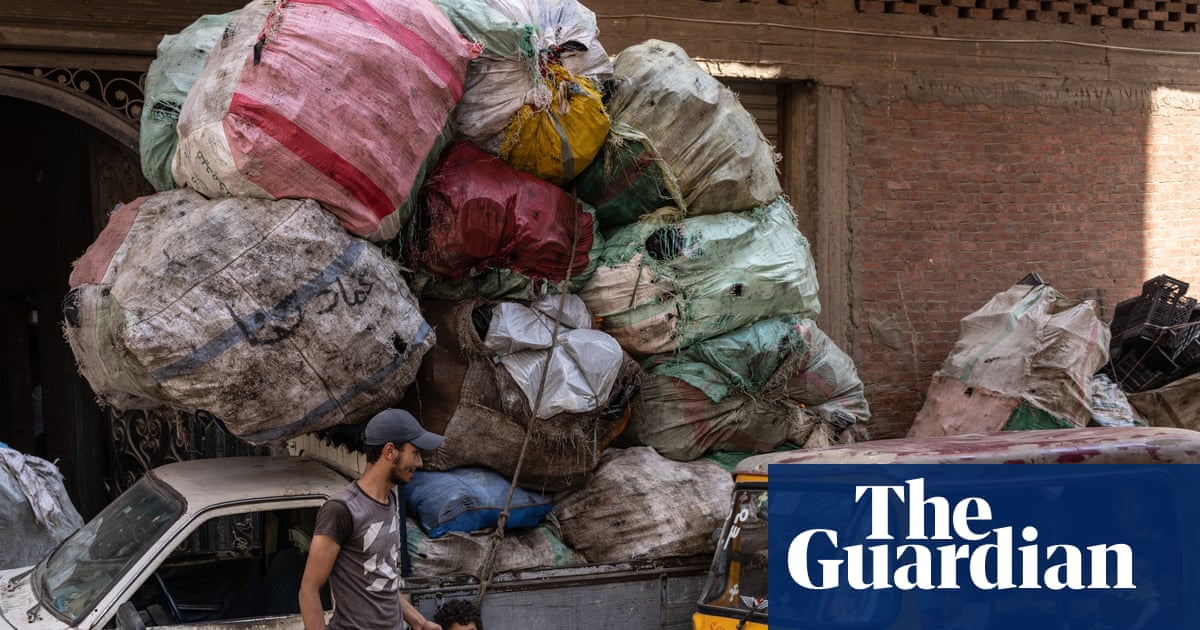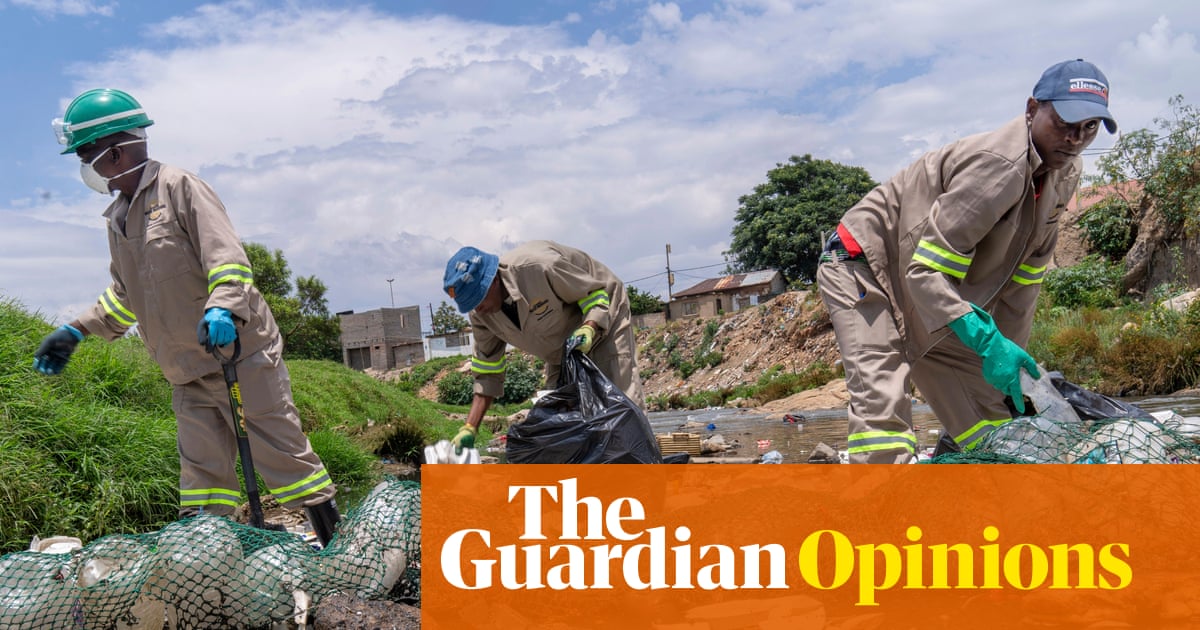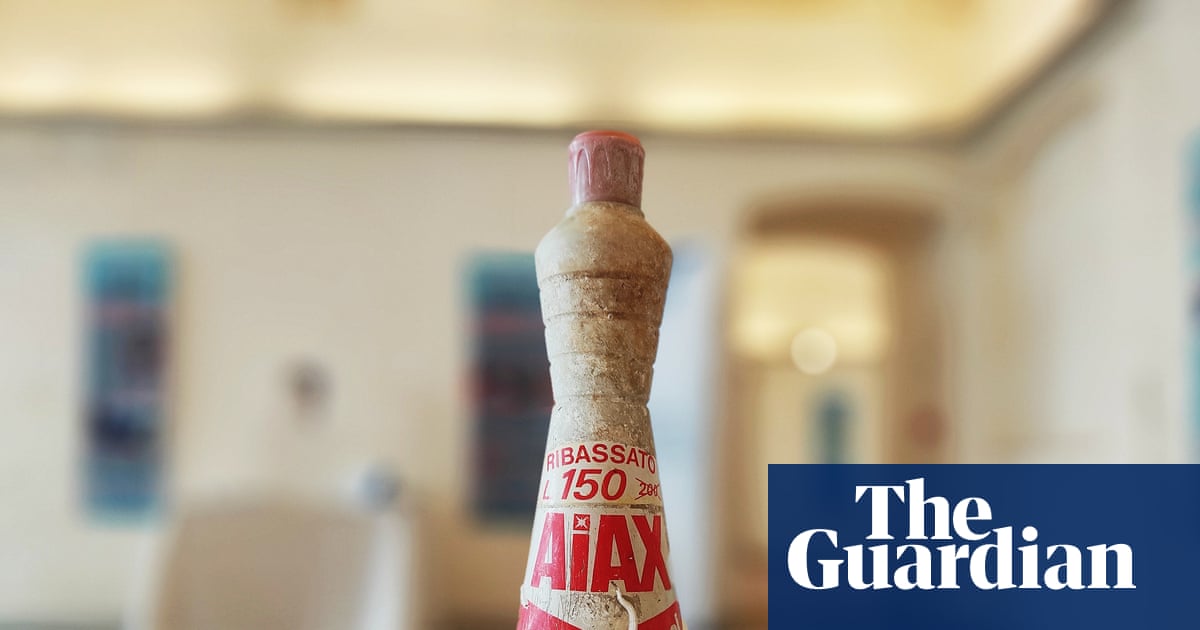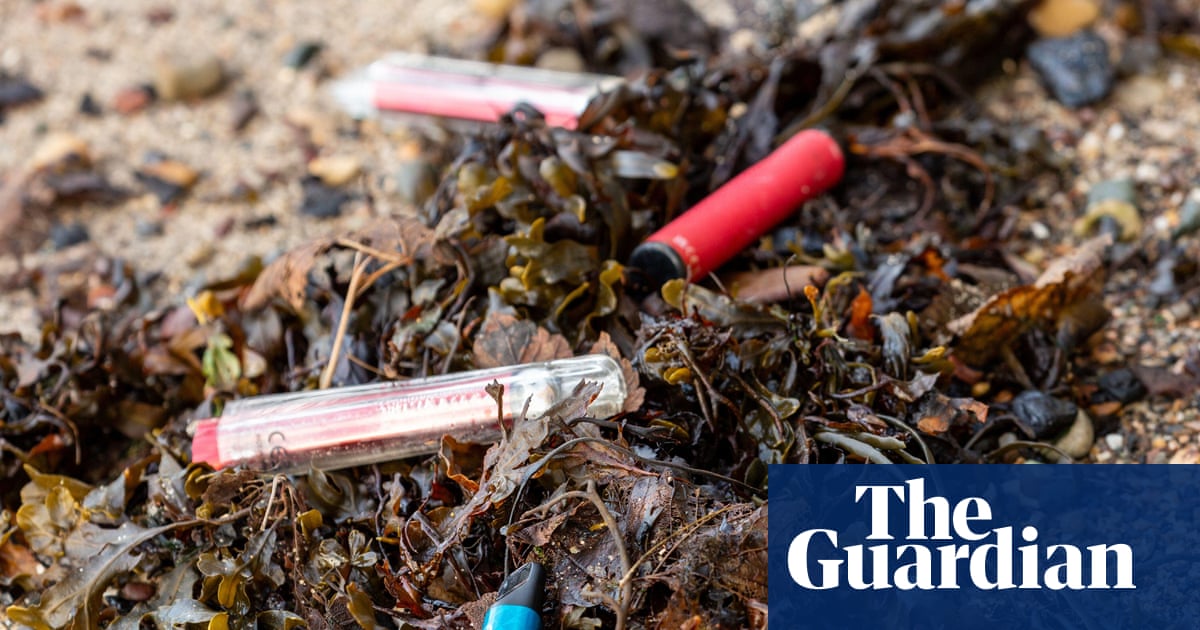#plastic-pollution
#plastic-pollution
[ follow ]
#microplastics #environmental-policy #fossil-fuels #sustainability #marine-wildlife #waste-management
fromKqed
1 month agoFrom the Galapagos to the Deep Sea, Cal Academy Scientists Describe 72 New Species | KQED
The lava heron also has a much thicker bill than other closely related herons - an adaptation linked to feeding among sharp volcanic rocks and hard-shelled prey. "What we learned was something that hadn't been reported before," Mendales said. The discovery underscores how much remains unknown, even in iconic places like the Galápagos, said John Dumbacher, the Academy's curator of birds and mammals and Mendales' thesis adviser.
Science
fromBusiness Matters
3 weeks agoMPs back UK innovators as Britain steps up fight against plastic pollution
According to United Nations estimates, more than 400 million tonnes of plastic waste are generated globally each year, with plastic pollution forecast to triple by 2060 unless action is taken. MPs were told that while recycling has dominated policy for decades, it cannot solve the crisis alone. Industry experts at the briefing argued that meaningful progress requires intervention across the entire plastics lifecycle, from production through to disposal, with replacement, rather than recycling, becoming the priority.
Environment
fromTasting Table
1 month agoSwap These Plastic Kitchen Items For Safer, Smarter Alternatives - Tasting Table
If you throw away a plastic item today, it'll very likely still be around for decades to come. In fact, some research suggests that certain plastic items could take up to 500 years to decompose. To put that in context, that means that if, say, Henry VIII threw away a plastic coffee pod in Tudor England, it would only just be finished degrading now. He didn't, of course; plastic wasn't used regularly until the 20th century. But you get the point.
Environment
Environment
fromThe Mercury News
1 month agoThe "surfer's paradox" is that their boards can harm the oceans they cherish. A new process is helping to change that.
3D-printed surfboards made from renewable materials can reduce surfboard-related plastic waste and carbon emissions compared with traditional oil-based foams.
Environment
fromArchDaily
2 months agoExtending the Lifespan of Materials: Circularity and Recyclability as Part of the Design
Global recyclability remains poor—most plastics are not recycled—while architecture increasingly adopts biomaterials, recycled polymers, and circular design to reduce environmental impact.
fromwww.theguardian.com
3 months agoPlastic paradise: on the frontlines of the fight to clean up pollution in Bali in pictures
In January the island's beaches were inundated with waves of plastic pollution, a phenomenon that has been getting worse by the year. Photographer and film-maker Sean Gallagher travelled to Bali to document the increasing tide of rubbish washing up on beaches and riverbanks, and the people facing the monumental challenge of cleaning up. His portraits are on show now as part of the 2025 Head On photo festival at Bondi Beach promenade until 30 November Putu Agus Indrawan holds up bags of plastic water bottles
Environment
fromwww.theguardian.com
3 months agoPlastic beads spreading on Sussex coast after catastrophic' spill, meeting told
Millions of tiny, toxic plastic beads are thought to have escaped into the sea from Eastbourne sewage works in East Sussex about two weeks ago when a screen keeping them in broke. They began to wash up on Camber Sands beach last Thursday, with the situation worsening over the weekend. Environment Agency sources suspect this is one of England's worst ever plastic pollution events, with approximately 10 tonnes of beads spilled:
Environment
fromwww.theguardian.com
3 months agoEnvironmental catastrophe' fears as millions of plastic beads wash up on Camber Sands
This is the worst pollution event I have ever seen. It is contaminated plastic. Marine animals will ingest small plastic items once they are in the sea, they will attract algae, they will smell like food, effectively. Once they've eaten it, that's it: they can't get it out. They will float on the surface. It will create a slick which attracts plunging seabirds.
Environment
Science
fromNature
3 months agoDaily briefing: How the plastics-treaty breakdown could pave the way for something better
Researchers reveal female Aedes control mating via slight genital extension, while open-source OpenFold3 previews protein-structure prediction and plastics policy options are considered.
fromABC7 Los Angeles
3 months agoCalifornia lawsuit says makers of plastic bags lied about products being recyclable
State Attorney General Rob Bonta, a Democrat, said companies Novolex Holdings, Inteplast Group and Mettler Packaging violated a state law passed in 2014 that banned plastic bags at grocery store checkouts that weren't recyclable. Under the law, shoppers could pay 10 cents for thicker plastic bags that needed to be reusable and recyclable. But the makers of the bags labeled them as recyclable even though they were not - recycling facilities cannot process them and they end up dumped in landfills, incinerated, or in the state's waterways, Bonta said.
Environment
fromwww.theguardian.com
4 months agoUK plastic waste exports to developing countries rose 84% in a year, data shows
Data analysed by the The Last Beach Cleanup, a US group campaigning to halt plastic pollution, showed that the increase in UK exports in the first half of 2025 was mainly to Indonesia (24,006 tonnes in 2025, up from 525 tonnes in 2024) and Malaysia (28,667 tonnes, up from 18,872 tonnes in 2024). Total plastic waste exports remained relatively high in the first half of 2024 and 2025, at 319,407 and 317,647 tonnes respectively.
Environment
fromwww.theguardian.com
4 months agoUN plastics treaty chair to step down with process in turmoil
The chair of stalled UN plastics treaty talks, Luis Vayas Valdivieso, is preparing to step down, after accounts of behind-the-scenes pressure from the United Nations Environment Programme (UNEP). The move will be announced at a UN meeting on Tuesday, with an official announcement expected by Thursday. Vayas Valdivieso confirmed in an interview with the Guardian that he was resigning and said: There have been some challenges in the process.
Environment
Arts
fromThe Art Newspaper - International art news and events
4 months agoCasa Sanlorenzo in Venice opens its first exhibition with a focus on ocean pollution
Fabrizio Ferri's Breathtaking installation confronts plastic and microplastic ocean pollution and its lethal consequences for marine life and humans.
Environment
fromwww.theguardian.com
4 months agoSustainable period products that actually work: the best pads, menstrual cups and swimwear, tested
Disposable menstrual products create massive plastic waste and can contain toxic chemicals; reusable options like menstrual cups and period underwear reduce environmental and health impacts.
fromColossal
5 months agoGlowing Plastic Spores Spring from Invasive Vines in Mika Rottenberg's 'Vibrant Matter'
When a virulent material enters an ecosystem, it can wreak havoc on existing life. Bittersweet vines in Upstate New York, for example, were brought to the region in the second half of the 19th century to combat erosion and for their sinuous, woody beauty. Native to eastern Asia, these largely poisonous plants quickly became invasive, smothering other specimens and even uprooting trees.
Arts
fromNature
5 months ago'A double-whammy problem': how plastic dust is altering natural processes
As fossil-fuel derivatives, plastics are made of refined carbon. By 2015, about 6.3 billion tonnes of plastic waste had been generated, with around 79% of this accumulating in landfills or the natural environment, where it breaks into ever smaller pieces. Each year, plastic production increases exponentially: the total weight of carbon in plastic has surpassed the mass of all animals combined, and is likely to equal the mass of all bacteria by 2095 (see 'Litter legacy').
Environment
fromFast Company
5 months agoRussia's drones have created a brand-new form of pollution
The Russian invasion of Ukraine will have long-lasting consequences for all of us. Like the 1939 invasion of Poland introduced the world to 'blitzkrieg'-high-speed tanks and air power quickly jumping enveloping and eliminating enemy lines-this war is the herald of a new military era of relentless unmanned war machines hunting the enemy through air, land, and water. The drones are part of a new, high-speed technological race with a major unintended consequence: endless miles of plastic string pollution.
Miscellaneous
Environment
fromwww.theguardian.com
6 months agoThe Guardian view on the collapse of environmental talks: petrostates blocked a global plastics deal, but we must not despair | Editorial
Blockers of the UN talks on plastic pollution have jeopardized future generations by obstructing a legally binding agreement.
fromwww.dw.com
6 months agoCountries can't agree on how to stop plastic crisis DW 08/15/2025
"At one end of the spectrum are the small island states, which are confronted with immense plastic pollution on their coasts and in their seas without contributing significantly to the pollution themselves," said Jochen Flasbarth, Germany's state secretary for the environment.
Environment
fromwww.theguardian.com
6 months agoTotal infiltration': How plastics industry swamped vital global treaty talks
Bethanie Carney Almroth described a hostile environment during the UN negotiations on plastic pollution, with personal harassment and intimidation by representatives of chemical companies.
Miscellaneous
[ Load more ]
